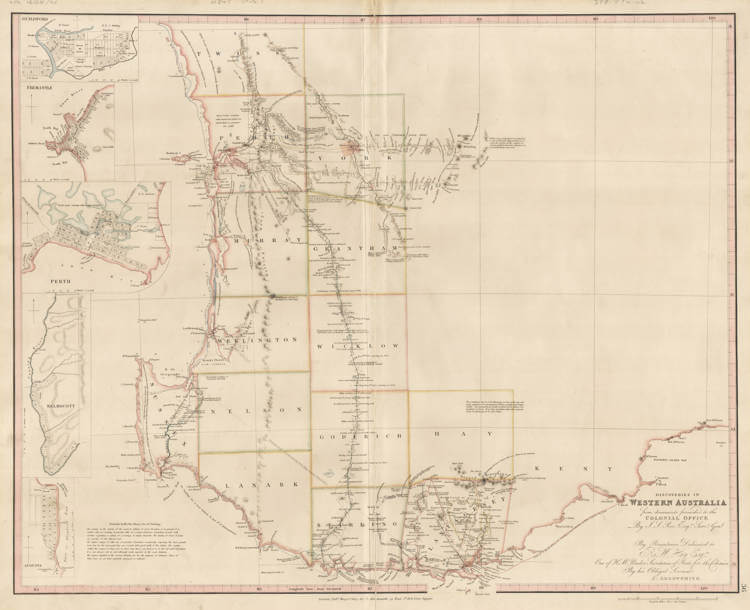Leen Helmink Antique Maps
Antique map of the South Pole by Coronelli
Stock number: 19377
Zoom ImageCartographer(s)
Vincenzo Maria Coronelli (biography)
Title
[no title]
First Published
Venice, 1688
This Edition
1688
Size
36.8 x 36.8 cms
Technique
Condition
mint
Price
$ 1,250.00
(Convert price to other currencies)
Description
Scarce North Pole cap, or calotte, for Vincenzo Coronelli's massive 42" globe.
This calotte is dominated by a decorative cartouche that describes Magellan's first circumnavigation of 1519-1522. It shows Magellan taking the veil of a globe while having his hand on the shoulder of Mercurius (Hermes), the Romen/Greek God of commerce. On the right we see trading goods, emphasizing the notion that international trade will bring prosperity to all.
For a good impression of the complete assembled globe, see the great online interactive globe of the David Rumsey Map Collection. See also this video animation of the same.
In 1678, Vincenzo Coronelli, a Franciscan Father specialized in theology, wood engraving, mathematics, astronomy and geography, had been consigned to make a set of large 175 cm set of terrestial and celestial globes for the Duke of Parma.
These were so impressive that in 1681 he was invited to Paris to produce such globes more than double the size (384 cms diameter) for the French Sun King Louis XIV. They weigh 2 tons each and are now in the French National Library.
The quality of globes made for the courts created a market for other Coronelli globes. Their reputation was so wide that in 1688, he produces his Librei di Globi, containing large 42 inch (110 cm) globe gores for a globe of the world and of the heavens. Less than 20 assembled globes have survived, but separate globe gores from the book occasionally appear in the market.
Condition
Thick paper. Very wide margins. Strong and even imprints of the copperplate. No restorations or imperfections. Overall in pristine collector's condition.
Vincenzo Maria Coronelli (1650-1718)
Ordained as a Franciscan priest, Coronelli spent of his life in Venice, becoming a noted theologian an being appointed, in 1699, Father General of his order. By that time he was already famous as a mathematician cartographer and globe maker and his influence led to a revival of interest in these subjects in Italy at the end of the seventeenth century. He was certainly the greatest cartographer of his time there and became Cosmographer to the Venetian Republic, taught geography in the University and, in 1680, founded the first geographical society, the Academia Cosmografica degli Argonauti.
In his lifetime he compiled and engraved over 500 maps including a large 2-volume work, the Atlante Veneto, somewhat reminiscent of Robert Dudley's Dell' Arcano del Mare; he is equally well known for his construction of very large terrestrial and celestial globes even finer than those of Blaeu, including one, 15 feet in diameter, made for Louis XIV of France.
(Moreland and Bannister)
Related Categories
Related Items






